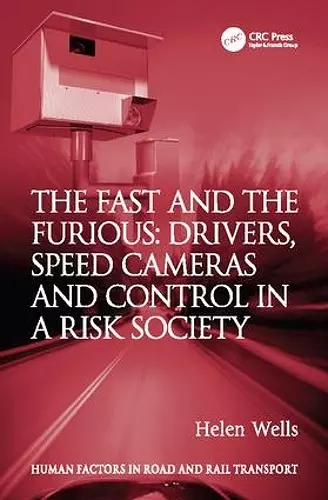The Fast and The Furious: Drivers, Speed Cameras and Control in a Risk Society
Format:Paperback
Publisher:Taylor & Francis Ltd
Published:31st Mar '17
Currently unavailable, and unfortunately no date known when it will be back
This paperback is available in another edition too:
- Hardback£160.00(9781409430896)

The Fast and The Furious: Drivers, Speed Cameras and Control in a Risk Society presents a sociological and criminological perspective critical to understanding the driver's role at the centre of road safety interventions. Such an approach is, it is argued, as crucial to an understanding of attempts to reduce road crashes, deaths and injuries as approaching such questions from an engineering or educational perspective. The book offers an explanation for the continued debate about one road safety intervention - the speed camera - by situating that debate within contemporary literature about the 'risk society' (Beck, 1992) and more broadly understood experiences of risk faced on a daily basis by drivers. Rather than a focus on risk as something that can be objectively assessed, measured and managed separately from the social context in which it is encountered, it suggests that 'risk' is something that permeates this particular debate from every angle. The book achieves its aims by utilising sociological and criminological perspectives to investigate issues such as: - the social context in which it is possible for drivers to reject official scientific expertise about crash causation and camera effectiveness - the self-defined 'respectability' of the population being problematised and its juxtaposition with a 'proper' police focus on 'real criminals' - the reconceptualisation of law-breaking as risk-taking rather than inherently 'wrong' behaviour and its consequences for the enforcement of laws based on risk assessment - the experience of being controlled by technology and of receiving what is essentially 'automated justice'. These and other issues are explored and suggested as illuminating of both the real concerns underpinning this debate and potentially instructive for future attempts to control risky behaviour both within and beyond a road safety context.
Shortlisted for the British Society of Criminology Book Prize, 2013. 'Helen Wells sets out on an important and timely quest to place roads policing through speed cameras in the context of a "risk society". Rightly, she avoids a debate about their effectiveness. Rather, she looks at changes in policing through greater use of technology and at the roles played by researchers, pressure groups and experts. As an expert cited, I found this a fascinating survey of a controversial topic.' Robert Gifford, Executive Director, Parliamentary Advisory Council for Transport Safety, UK 'We've waited a long time for this fresh perspective on a topic that touches us all in risk society. Using a multi-method, multi-site empirical study as her basis, Wells unpicks the many and contradictory strands of the speed camera debate, deliberately retaining a neutral stance and positioning the whole enterprise within a risk narrative. As such it delivers a powerful analysis of what was seen to "go wrong" through giving "voice" to drivers, and serves up timely insights for the enforcing authorities. A real tour de force!' Claire Corbett, Brunel Law School, UK 'A real thought provoker for anyone who has ever had an opinion about speed cameras! Through the voices of drivers, enforcers, persuaders, and decision-makers, this is an insightful look at the debate on arguably the most contentious of 'techno-fixes'. In explaining how, in many people's eyes, "safety cameras" became "speed traps", Wells reminds us that opinions cannot be changed by scientific evidence alone and that public acceptance is a prerequisite for any intervention.' Lindsey Simkins, Royal Society for the Prevention of Accidents, UK
ISBN: 9781138077805
Dimensions: unknown
Weight: 453g
248 pages